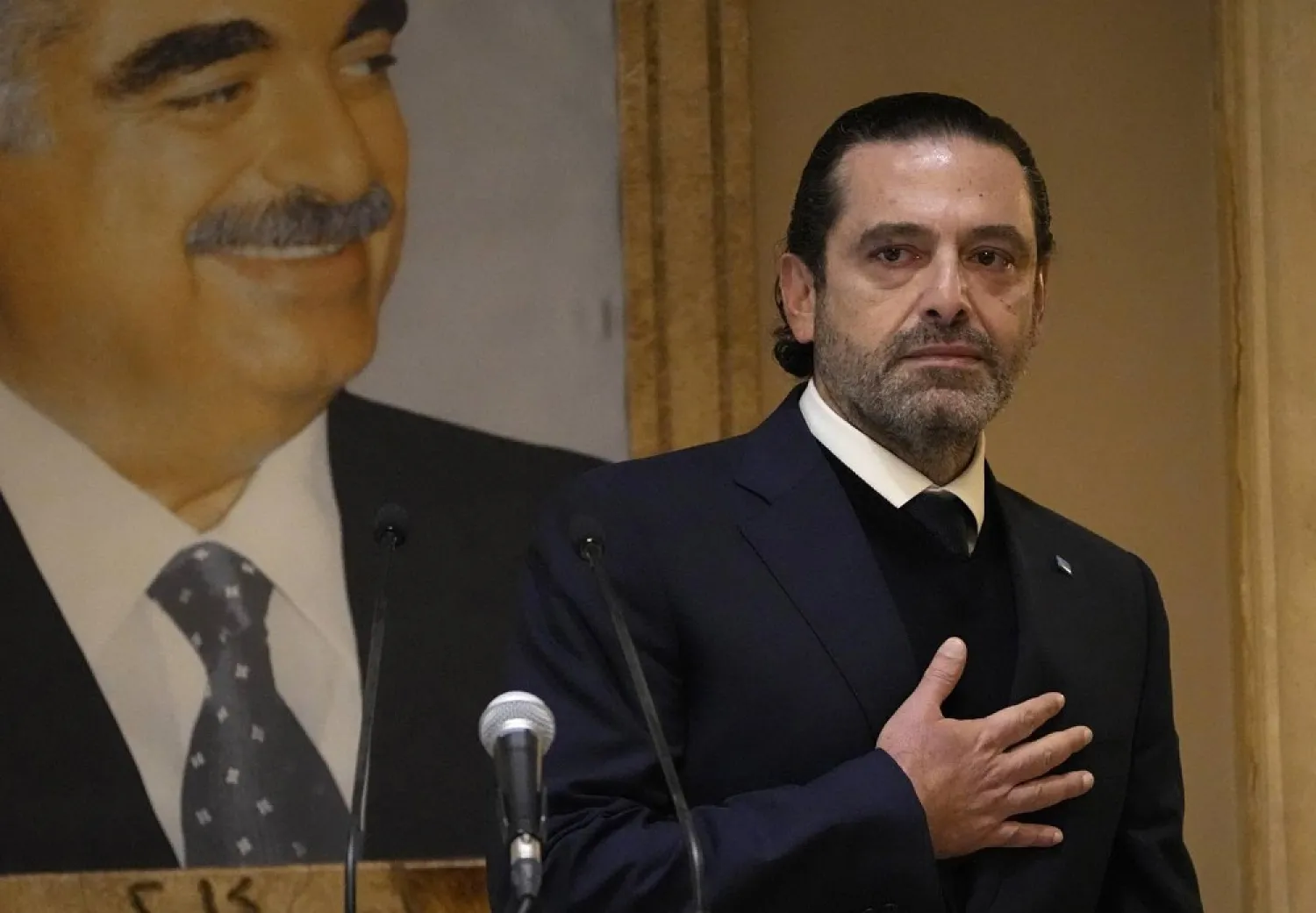Head of the Mustaqbal movement, former Prime Minister Saad al-Hariri's decision to refrain from running in the upcoming parliamentary elections has delivered contradictory messages over the future role that will be played by Lebanon's Sunnis, the country's largest sect.
Some sides have been alarmed by the Sunni leader's to step aside during a pivotal year for Lebanon, which is expected to witness parliamentary elections in May and presidential elections in the fall.
Other sides, however, see the move as an opportunity.
A former prime minister has said the current efforts by Sunni leaderships to achieve a Sunni electoral push away from Hariri and his movement is indeed an opportunity.
The Mustaqbal has been leading the Sunni political scene since the early 1990s.
Up until this moment, it appears that the Sunnis who will run in the elections will not be united under a single leadership. Rather, prominent individual Sunni figures will likely wage the elections under a single slogan related to Lebanon's sovereignty, Arab belonging and confronting the Iranian threat. They will also promote slogans related to Lebanon's development and economic recovery, negotiations with the IMF and pushing reforms forward.
The lack of central Sunni authority for the entire country, as has been the case in previous elections when the Mustaqbal represented the vast majority of the sect, will produce small parliamentary blocs. They, in turn, will reach understandings with each other to form a united front ahead of major political events in Lebanon, most notably the presidential elections and appointing a new prime minister.
Another former prime minister said that running elections demands an effective electoral leadership, which currently does not exist. Dar al-Fatwa and Grand Mufti Sheikh Abdul Latif Derian appear unwilling to become embroiled in the elections and would rather preserve a unifying national role for the Sunnis.
Former prime ministers have also said they will not run in the elections, which has added pressure on Dar al-Fatwa to become more politically engaged to preserve the Sunni role and Lebanon's Arab identity.
Dar al-Fatwa has called for addressing the situation through cooperation, consultations and united ranks.
Derian earlier this week said Dar al-Fatwa has always carried out its unifying religious national role and it will continue to do so to safeguard Lebanon and the rights of its people.
On the other hand, some sides believe that the confusion sparked by Hariri's suspension of his political career will serve as an opportunity to end the major national crisis Lebanon is enduing.
They have cited the Sunni sect's largely unwavering and consistent national stance.
Former ministers Nouhad al-Mashnouq and Ashraf Rifi, meanwhile, said the elections may produce new Sunni leaderships
Moreover, Mashnouq dismissed concerns that Hezbollah will be able to achieve a major breakthrough in the sect through the elections.
Electoral experts suspect the party will take advantage of the void left behind by Mustaqbal to influence Sunni voters in several districts, such as Beirut, the northern province of Akkar, the norther, western and central Bekaa in the east, and the Chouf in Mount Lebanon.
Sunni votes in the previous polls in 2018 played a major role in the election of lawmakers from other sects, especially in Akkar, Beirut, Mount Lebanon and the western and central Bekaa.











